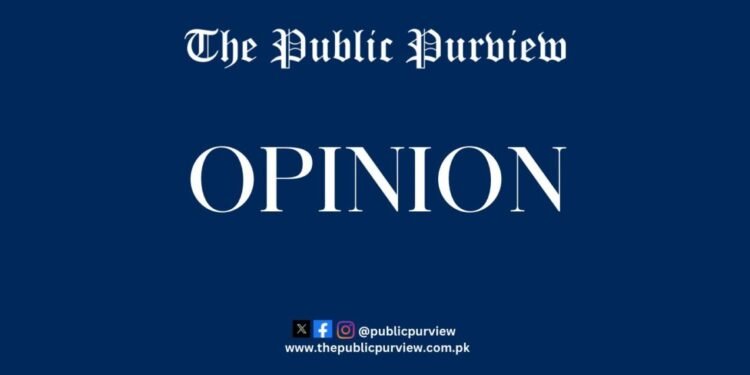Prof. Dr. Arshad Munir
Tertiary education in Pakistan is facing crucial financial constraints since several years. Federal Government allocated Rs 76.589 billion for Higher Education affairs & services for Fiscal year 2023-2024 and Rs74.609 billion in 2022-2023 for more than 200 tertiary institutions of Pakistan which means an average of approximately 400 million rupee per university.
Should we compare our total budget for more than 200 universities (max: USD 275 Million with USD 3.8 billion budget of the university of Oxford? Of course, not, then, to be frank, we should look into our own street and make consistent efforts to reach the sky. All the stakeholders i.e. higher education commission, provincial education commissions, higher education departments, universities are crying for low & less allocation of funds by the Governments which is causing severe financial constraints and unfortunately are blaming each other for the prevailing situation.
The KPK Government has even proposed to declare higher education as essential services in line with essential services Act with ban on creation of new universities as well as ban on new appointments in BPS 1 to 16 and abolishment of Vacant Posts. According to a report published by the Governor’s secretariat, KPK in January, 2024, “University surpluses for 2021-2022 were Rs 4113 Million and 3913 million for 2022-23. However, the projected surplus for 2023-2024 is just Rs 545 million due to over-recruitment, inflation, lack of savings and ORIC underperformance”.
Similarly, Governor of the Punjab Eng. Muhammad Balighur Rehman recently has approved recommendations presented by the consortium members under convenorship of the famous scientist and renowned administrator, Prof. Dr. Talat Naseer Pasha including, mandatory training of university teachers, improvement of financial affairs within universities, improving the efficiency of the syndicate and senate etc for the upgradation of HEI’s of the Punjab province.
Higher Education Commission luckily has two living legends (Prof. Dr. Mukhtar Ahmad and Prof. Dr. Zia ul Qayum)who have strong professional and administrative skills and hopefully would be able to streamline reputation of the Commission as well HEI’s of Pakistan . As all the efforts are made to take the tertiary institutions on right path, therefore, the pressing need has been illuminated for strategic reforms and realignment of priorities.
Also read: Encouragement values more in the promotion of Higher Education
It is a historical lesson as well as the principle of economics to find out new markets for selling your product in order to make yourself prosperous. In my opinion, African continent is a potential market for Pakistan regarding educational affairs and Nigeria can be the best target for achieving our goals as it is not only a densely populated country but also spends more than 5 % of the GDP on education. Relations between Pakistan and Nigeria are friendly, affable and strong having bilateral agreements of trade, cooperation on law enforcement and defence collaborations.
The Nigerian people and especially the Muslim majority states in the north have a lot of affection and admiration towards Pakistan. The Sultan of Sokoto Muhammadu Sa’ad Abubakar CFR, who is considered the spiritual leader of Nigeria’s Muslims as well as leading figures in Nigerian society has love and kind attitude towards Pakistan and the people of Pakistan. He also has served as Defence Attaché to Pakistan and can speak URDU.
We could create commercial contacts between Nigeria and Pakistan on education sector by establishing links with national and local rulers. As a student as well as the stakeholder, I would like to contribute towards the above-mentioned efforts by presenting an “EFG” plan to ensure financial sustainability and continued development of higher education of Pakistan by attracting Nigerians to join Pak tertiary institutions through TETFund and funding from state governments.
TETFund(Tertiary Education Trust Fund)is an intervention agency to offer funding to all levels of public tertiary institutions. The funds are disbursed for the general improvement of education in federal and state tertiary educations for the provision or maintenance of essential physical infrastructure for teaching and learning, Research and publications, Academic staff training and development, and any other need which, in the opinion of the Board of Trustees, is critical and essential for the improvement and maintenance of standards in higher educational institutions.
If we get only two students from 36 states and only 28 students from TETFund, it would make a size of one hundred international students that can be adjusted in various HEI’s of Pakistan. The approximate financial assistance from the federal and state governments is between 20-25 million Naira per scholar for postgraduate studies which is approximately Rs 9-10 million that mean Rs: 900 million revenue per year. The quantity can increase upon our performance and commitment.
The proposal can increase financial strength of the HEI’s and would help in creation of international networking, bringing foreign faculty and international studentship which would also result in high global ranking. I am ready to present my detailed proposal before any stakeholder(s) and would be available free of cost for this noble cause. The task is, of course hard and painstaking but would bring prosperity to our state & society. God has clearly announced in Surah Najam, verses 39-40, “and that each person will only have what they endeavoured towards, and that ˹the outcome of˺ their endeavours will be seen ˹in their record˺”.





















